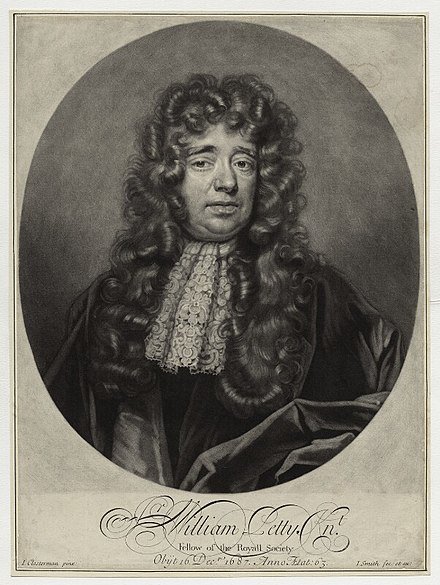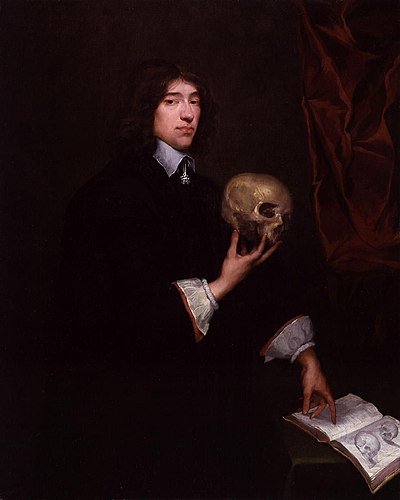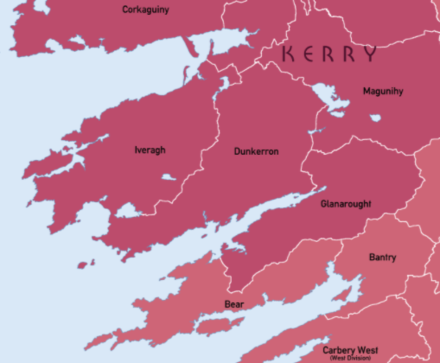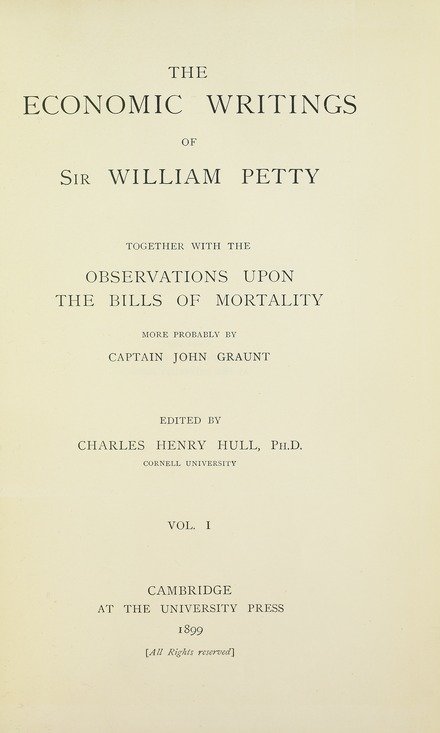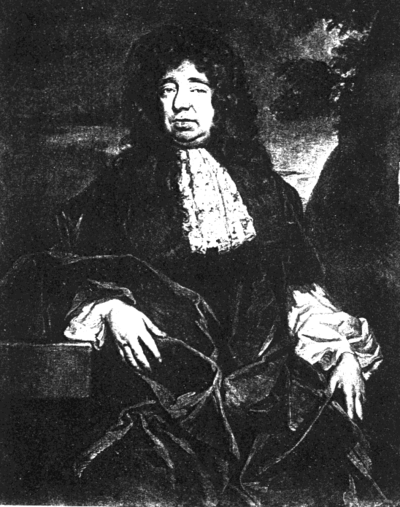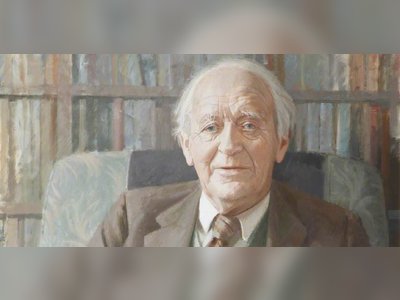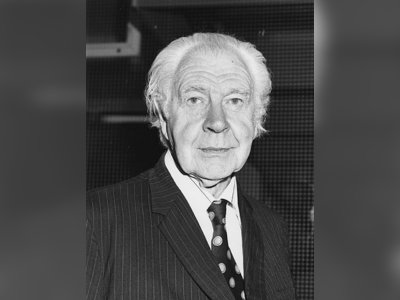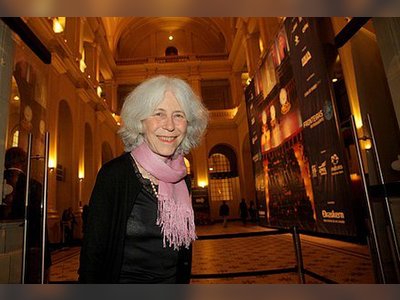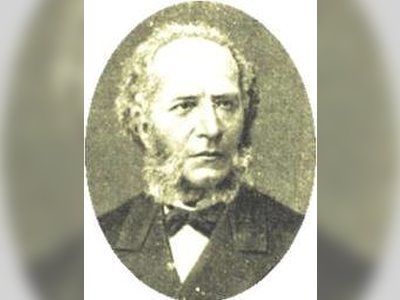British Heritage
Remember, Cherish, Learn.
beta
William Petty - Land Surveying by Political Arithmetic
Contribution to British Heritage.
Sir William Petty, a versatile figure in the 17th century, made significant contributions to British heritage in various fields. Born on May 26, 1623, in Romsey, England, he excelled as an economist, physician, scientist, philosopher, and surveyor. Petty's legacy is rooted in his pioneering work in land surveying by employing innovative methods of "Political Arithmetic." His exceptional skills and service to Oliver Cromwell and the Commonwealth in Ireland brought him prominence early in his career.
One of his remarkable achievements was developing efficient land surveying techniques, which played a crucial role in the redistribution of confiscated land to Cromwell's soldiers in Ireland. This project, known as the Down Survey, proved instrumental in ensuring the self-financing of Cromwell's army. It is worth noting that Petty's contributions extended beyond the political climate of the time, as he continued to hold a significant position under the rule of King Charles II and King James II.
Petty's impact on British heritage was not limited to politics and land surveying; he was also a founding member of the Royal Society, which was at the forefront of scientific advancements in the country. His intellectual pursuits and scientific interests were broad, encompassing fields such as medicine, anatomy, naval architecture, and music. Moreover, he served as a Member of Parliament and held the title of Gresham Professor of Music in London.
However, it is his theories on economics and "political arithmetic" that earned him lasting recognition and a place in the annals of British heritage. He is credited with coining the term "laissez-faire," which advocates for limited government intervention in economic affairs. This philosophy became influential in later years and contributed to shaping British economic policies.
William Petty's success in various fields and his significant contributions to British heritage were fueled by his exceptional intellect and early exposure to diverse disciplines. As a precocious and intelligent youth, he displayed a thirst for knowledge and demonstrated proficiency in Latin, Greek, French, mathematics, and astronomy. After overcoming a setback as a cabin boy, he pursued studies with the Jesuits in Caen, France, before returning to England to study medicine at Oxford.
Petty's career journey took him to Holland, where he developed an interest in anatomy and connected with influential figures like Thomas Hobbes, Descartes, Gassendi, and Mersenne. Upon his return to England, he immersed himself in various pursuits, from serving as an anatomy instructor at Brasenose College, Oxford, to engaging in politics as a Cromwellian supporter and later as an elected Member of Parliament.
His momentous work in land surveying in Ireland, known as the Down Survey, earned him substantial land holdings in the region and led to his eventual knighthood in 1661. Despite facing court cases over allegations of bribery and breach of trust, Petty continued to focus on his passion for "political arithmetic" and the study of Ireland's prosperity. He co-founded the Dublin Society in 1682, further solidifying his impact on Irish society.
Petty's influence extended beyond his lifetime, shaping the economic theories and policies of subsequent generations. His methodical approach to economics, centered on quantitative precision and measurable phenomena, laid the groundwork for modern census techniques and statistical analysis. His ideas on fiscal contributions, national wealth, the money supply and circulation velocity, value, interest rates, international trade, and government investment had a profound impact on economic thought.
His theories on value, interest rates, and the division of labor resonate with the works of later economists like Adam Smith, John Maynard Keynes, and Karl Marx. The lasting legacy of Petty's ideas and their integration into economic discourse speak to his enduring importance in the development of British heritage and the field of economics.
Sir William Petty's legacy as an economist, physician, scientist, philosopher, and land surveyor has left an indelible mark on British heritage. His pioneering work in "political arithmetic" and land surveying methods, especially during the turbulent political climate of the 17th century, showcased his exceptional intellect and versatility. As a founding member of the Royal Society and an influential figure in Parliament, he contributed to the advancement of science and the political landscape of his time.
Petty's economic theories, centered on quantitative precision and the philosophy of "laissez-faire," laid the foundation for modern census techniques and statistical analysis. His contributions to fiscal policy, value theory, interest rates, and international trade influenced subsequent generations of economists, including Adam Smith and Karl Marx.
Throughout his life, Petty's curiosity and dedication to various fields of study were evident, and he continued to engage in a wide range of pursuits until his death on December 16, 1687. His exceptional achievements, intellectual rigor, and lasting impact on economics and British heritage make Sir William Petty a revered figure in history and a significant contributor to the understanding of political and economic systems.
One of his remarkable achievements was developing efficient land surveying techniques, which played a crucial role in the redistribution of confiscated land to Cromwell's soldiers in Ireland. This project, known as the Down Survey, proved instrumental in ensuring the self-financing of Cromwell's army. It is worth noting that Petty's contributions extended beyond the political climate of the time, as he continued to hold a significant position under the rule of King Charles II and King James II.
Petty's impact on British heritage was not limited to politics and land surveying; he was also a founding member of the Royal Society, which was at the forefront of scientific advancements in the country. His intellectual pursuits and scientific interests were broad, encompassing fields such as medicine, anatomy, naval architecture, and music. Moreover, he served as a Member of Parliament and held the title of Gresham Professor of Music in London.
However, it is his theories on economics and "political arithmetic" that earned him lasting recognition and a place in the annals of British heritage. He is credited with coining the term "laissez-faire," which advocates for limited government intervention in economic affairs. This philosophy became influential in later years and contributed to shaping British economic policies.
Success and General Information
William Petty's success in various fields and his significant contributions to British heritage were fueled by his exceptional intellect and early exposure to diverse disciplines. As a precocious and intelligent youth, he displayed a thirst for knowledge and demonstrated proficiency in Latin, Greek, French, mathematics, and astronomy. After overcoming a setback as a cabin boy, he pursued studies with the Jesuits in Caen, France, before returning to England to study medicine at Oxford.
Petty's career journey took him to Holland, where he developed an interest in anatomy and connected with influential figures like Thomas Hobbes, Descartes, Gassendi, and Mersenne. Upon his return to England, he immersed himself in various pursuits, from serving as an anatomy instructor at Brasenose College, Oxford, to engaging in politics as a Cromwellian supporter and later as an elected Member of Parliament.
His momentous work in land surveying in Ireland, known as the Down Survey, earned him substantial land holdings in the region and led to his eventual knighthood in 1661. Despite facing court cases over allegations of bribery and breach of trust, Petty continued to focus on his passion for "political arithmetic" and the study of Ireland's prosperity. He co-founded the Dublin Society in 1682, further solidifying his impact on Irish society.
Petty's influence extended beyond his lifetime, shaping the economic theories and policies of subsequent generations. His methodical approach to economics, centered on quantitative precision and measurable phenomena, laid the groundwork for modern census techniques and statistical analysis. His ideas on fiscal contributions, national wealth, the money supply and circulation velocity, value, interest rates, international trade, and government investment had a profound impact on economic thought.
His theories on value, interest rates, and the division of labor resonate with the works of later economists like Adam Smith, John Maynard Keynes, and Karl Marx. The lasting legacy of Petty's ideas and their integration into economic discourse speak to his enduring importance in the development of British heritage and the field of economics.
Conclusion
Sir William Petty's legacy as an economist, physician, scientist, philosopher, and land surveyor has left an indelible mark on British heritage. His pioneering work in "political arithmetic" and land surveying methods, especially during the turbulent political climate of the 17th century, showcased his exceptional intellect and versatility. As a founding member of the Royal Society and an influential figure in Parliament, he contributed to the advancement of science and the political landscape of his time.
Petty's economic theories, centered on quantitative precision and the philosophy of "laissez-faire," laid the foundation for modern census techniques and statistical analysis. His contributions to fiscal policy, value theory, interest rates, and international trade influenced subsequent generations of economists, including Adam Smith and Karl Marx.
Throughout his life, Petty's curiosity and dedication to various fields of study were evident, and he continued to engage in a wide range of pursuits until his death on December 16, 1687. His exceptional achievements, intellectual rigor, and lasting impact on economics and British heritage make Sir William Petty a revered figure in history and a significant contributor to the understanding of political and economic systems.
- William Pettyen.wikipedia.org
